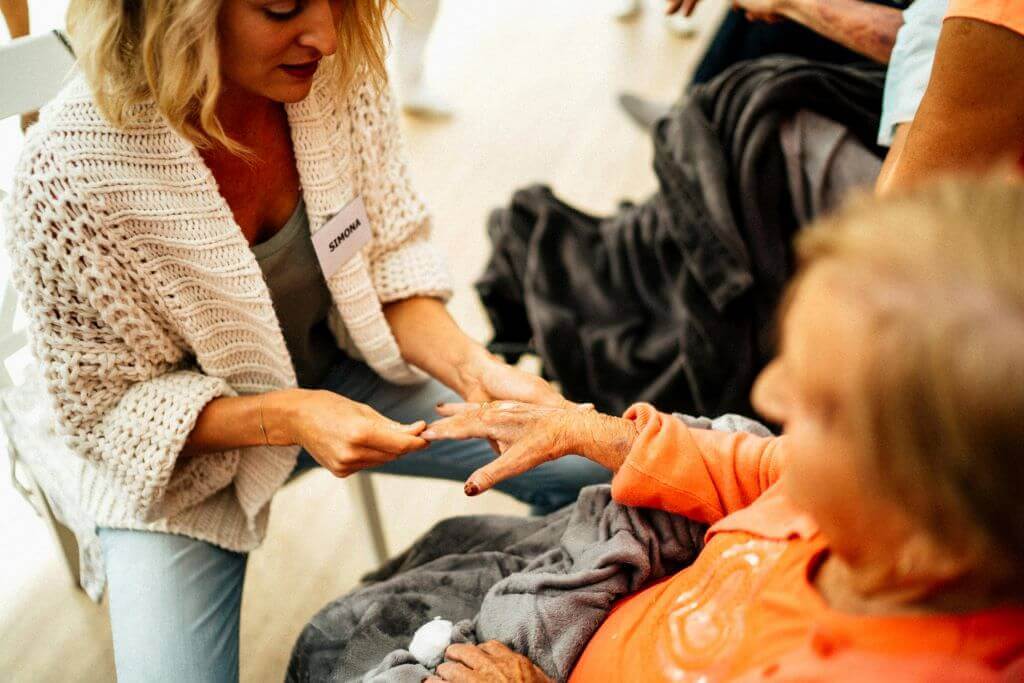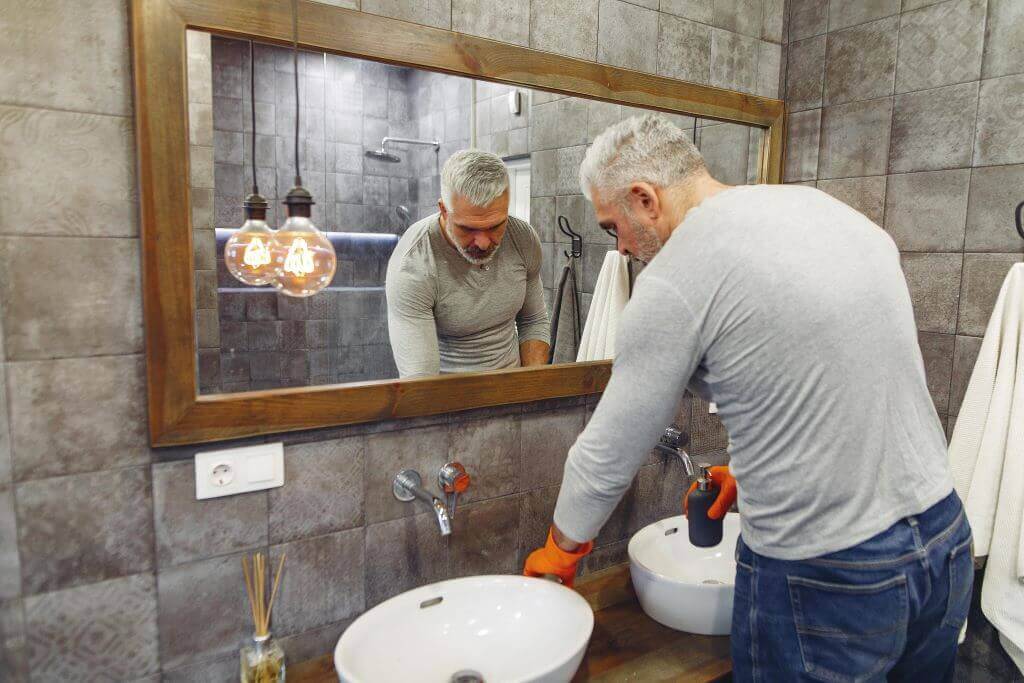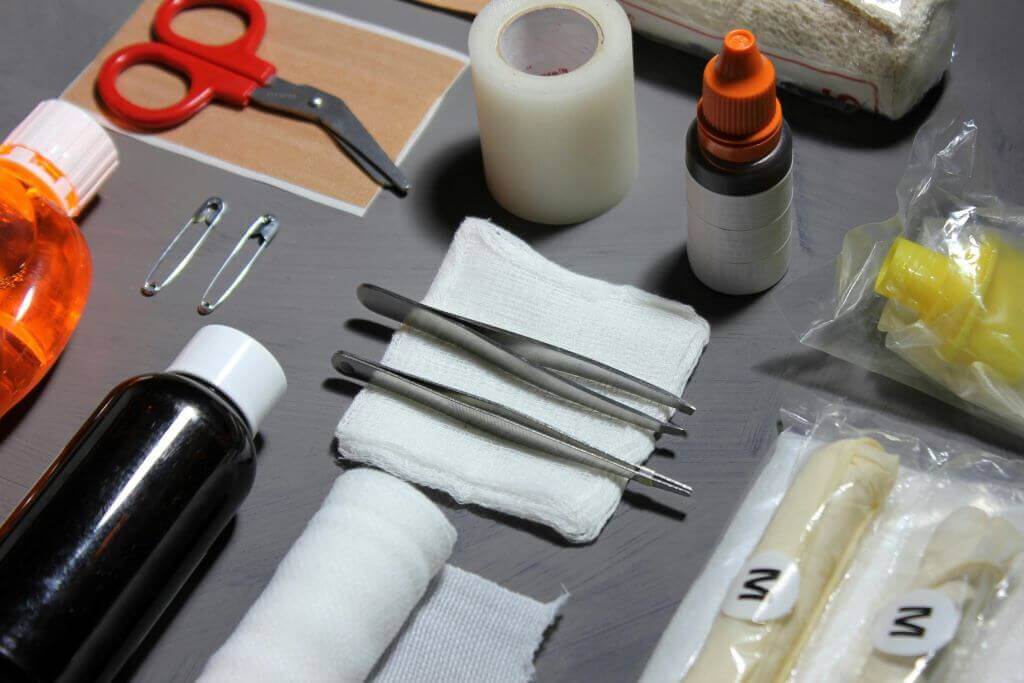"It's hard to get anything done in the first place, and then you get older, and it's even harder." These words by Robin Williams humorously acknowledge that daily tasks become more difficult as you age. In the US, around 40 million people would agree with you. That’s the number of people who need help with at least one Activity of Daily Living (ADL), according to data published in a National Alliance for Caregiving (NAC) report.
Requiring assistance with one or more ADLs means that, to some degree, you cannot function completely independently. For many, this can lead to frustration and a loss of self-esteem and dignity. To age gracefully is, therefore, more than just a physical process. We must take care of both our physical and mental well-being and cultivate a sense of purpose and fulfillment.
It's essential to embrace, rather than resist, the changes that come with aging. Accepting wrinkles, gray hair, and other signs of aging as natural parts of life helps promote self-acceptance and confidence. By reframing our perspective on aging as a journey marked by wisdom and experience, we can approach the process with dignity and grace.
Cultivating Self-Esteem and Independence
While it is natural for some level of dependence to develop with advancing age, we must find ways to age gracefully and preserve our independence wherever possible. Engaging in activities that promote self-reliance and decision-making can boost confidence and create a sense of control over our lives. Let’s look at some ways we can achieve this:
Stay Active. Physical activity benefits physical health and boosts mood and self-confidence. Consider low-impact exercises like walking, swimming, or yoga to stay fit and active.
Pursue Hobbies. Hobbies can provide a sense of purpose and fulfillment and can enhance your self-worth.
Stay Connected. Social connections can prevent loneliness and help in maintaining self-esteem. Stay connected with family members and friends, or join community groups to build a support system.
Look after yourself. Prioritize your mental and emotional well-being with self-care activities like meditation, mindfulness exercises, journaling, or simply taking time to relax and unwind.
Set Realistic Goals. Setting achievable goals can help boost your confidence and sense of accomplishment. Break down larger tasks into smaller steps and celebrate each milestone you reach along the way.
Embrace Change. Aging is a natural part of life, and embracing the changes that come with it can empower you to adapt and age gracefully while maintaining your independence.
The Role of Support Systems
The loss of independence among older adults can create frustration and resentment and cause a feeling of helplessness. Support systems are crucial in promoting social interaction and providing emotional support and a sense of belonging. Family support is also vital in old age, as it helps seniors feel loved, cared for, and valued so they can age gracefully.
Caregivers are often the first line of support for their patients, so it’s important that they build their own support system as well. Organizations like the Family Caregiver Alliance and the National Alliance for Caregiving offer resources that can benefit both caregivers and their patients.
Overcoming Stigmas and Embracing Change
Sadly, society still stigmatizes many of the consequences of aging and the health conditions that befall older people, potentially causing some to withdraw from social contact. It can also severely affect a person’s self-image and cause frustration and depression.
Maintaining a positive outlook on aging is crucial for not only our mental well-being but also our overall quality of life. Breaking these stereotypes and embracing the changes that come with getting older may help to shift our perspective from focusing on limitations to celebrating what we can do. By embracing change with an open heart and mind, we can age gracefully and create a future where age is seen as a source of strength, wisdom, and vitality.
Challenges, Strategies and Coping Mechanisms for Caregivers
The role of a caregiver is very demanding, both physically and mentally. According to the NAC report we referenced earlier, one in five caregivers reported that their own health had deteriorated. A caregiver’s health is essential in helping an older adult cope with the challenges of aging and maintain their self-esteem and dignity.
Challenges
- · Becoming overwhelmed or frustrated due to the demands of caregiving, potentially leading to outbursts or impatience.
- · Feeling guilty about the patient's situation and that they’re not doing enough or making the right decisions.
- · Feeling resentment or anger toward the patient due to the demands placed on the caregiver, which can strain the relationship.
- · Difficulty managing personal expectations and accepting the limitations of both the caregiver and the patient.
- · Setting boundaries on what they can and cannot do as a caregiver, ensuring their own well-being is not compromised.
- · Emotional and physical exhaustion caused by prolonged caregiving and exposure to another person's suffering.
Strategies
- · Communicate openly and honestly with the patient about their needs, limitations, and feelings.
- · Show empathy by trying to understand the patient’s perspective and the challenges they are facing, as well as being patient and understanding.
- · Involve the patient in care decisions whenever possible, respecting their autonomy and sense of control.
- · Recognize and acknowledge their emotions and find healthy ways to cope with them, such as talking to a trusted friend or therapist or joining a support group.
- · Celebrating achievements, both yours and the patient’s. This helps to promote a sense of accomplishment.
- · Prioritize activities that support your physical and mental health, such as exercise, relaxation techniques or hobbies.
- · Establishing clear boundaries and expectations about what you can and cannot do, and communicate them clearly.
- · Recognize your and your patient’s limitations. Focus on what can be done rather than dwelling on what cannot.
In addition to dealing with these specific challenges, caregivers can also take steps to “limit the number of moving parts.” This reduces the number of tasks or chores, prevents unnecessary stress and frees up time for rest and recuperation.
For example, let LL Medico “manage” your senior care supplies cabinet. Our Autoship feature allows you to schedule orders for automatic delivery whenever required, ensuring you never run out unexpectedly. We stock a comprehensive range of adult diapers, personal care necessities, over-the-counter medications, and much more.
Give us a call today at (855) 422-4556 or email us at support@llmedico.com. We’re also available to chat online between 9 a.m. and 5 p.m. EST. With more than 25 years of experience in this field, our team can advise you on the best value-for-money product options and help you set up your delivery schedule.







 855-422-4556
855-422-4556 Chat
Chat E-Mail
E-Mail Monday - Friday 9:00AM to 5:00PM EST
Monday - Friday 9:00AM to 5:00PM EST





 Shopping With LL Medico
Shopping With LL Medico
 855-422-4556
855-422-4556